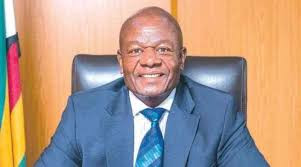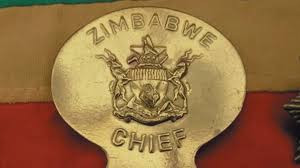By The Fiddler Brutus participated in the assassination of Julius Caesar. In Shakespeare’s play Julius Caesar Mark Antony declares several times at Caesar’s funeral “Brutus is an honourable man”. These words were deeply ironic as Antony was attempting to portray Brutus as ungrateful and treacherous. He succeeded in turning the Roman people against Brutus and the other assassins.
Thus you can call a person “honourable” when you mean the opposite. The same applies to the term “my learned friend”. It is a tradition in the legal profession for opposing lawyers to refer to each other as “My learned friend”. The lawyer referring to his opponent in this manner may intensely dislike him or her and may consider him or her to be distinctly ignorant about the law – “With respect, I submit my learned friend’s arguments are asinine and entirely without the slightest merit.”
An honourable person is a person who is deserving of our praise and respect. That person will be honest and selfless and concerned about the welfare of others, especially the poor and vulnerable.
A person we have elected to represent us in Parliament instantly takes on the mantle of “Honourable Member of Parliament”. We would like to believe that these persons will live up to their title. Thomas Jefferson put it this way. “I love to see honest and honourable men at the helm, men who will not bend their politics to their purses, nor pursue measures by which they may profit, and then profit by their measures.”
Regrettably, many do not deserve the designation “honourable’. One cynic suggested that, “If you want to be an honourable man, then be what you pretend to be.” Another said. “You are an honest and honourable man…Ofttimes I forget that. I have met so few of them in my life.” Another said the common failings among honourable people is a failure to appreciate how thoroughly dishonourable some other people can be, and how dangerous it is to trust them.”
Members of Parliament have an absolute privilege in respect of statements made by them during parliamentary debates. (Section 5 of the Privileges, Immunities and Powers of Parliament Act [Chapter 3:03]) This privilege is extended to allow unconstrained and probing debate. A private citizen who is defamed by an MP speaking in Parliament cannot sue the MP, unless when challenged to do so, the MP repeats the defamatory statement outside the precincts of Parliament.
Keep Reading
- Chamisa under fire over US$120K donation
- Mavhunga puts DeMbare into Chibuku quarterfinals
- Pension funds bet on Cabora Bassa oilfields
- Councils defy govt fire tender directive
Parliamentarians are often at loggerheads with one another. Parliamentary debates can easily turn acrimonious. Tempers may flair and ruling party and opposition party member may trade insults. The Speaker of Parliament, despite his title, does not participate in parliamentary debates. Instead he has the often difficult task of regulating parliamentary debate to ensure that honourable members do not exceed the bounds of robust debate by using “unparliamentary” language. They should display due respect for other MPs even if they actually have no such respect. They should avoid making personal attacks upon them. An MP should not use parliamentary privilege to make an entirely false or completely baseless accusation that another MP has lied or committed a criminal offence. But can an MP during a parliamentary debate provide proof that a fellow has lied or has committed a criminal offence.
Someone had the effrontery to say, “Democracy is the system in which one party always devotes its chief energies to trying to prove that the other party is unfit to rule – and both commonly succeed and are right.”
What follows is an assortment of disparaging statements made by politicians about their political opponents.
Adlai Stevenson once told his political opponents: “If you stop telling lies about me, I’ll stop telling the truth about you.”
In 1672, the Duke of York once called Lord Shaftesbury a rascal and a villain. A couple of centuries later, Benjamin Disraeli was called to order for declaring that half the cabinet were asses. “Mr. Speaker, I withdraw,” he apologized. “Half the cabinet are not asses.” Later Labour MP Dennis Skinner quipped about Tory MPs, “Half the Tory members opposite are crooks.” When told to withdraw this remark by the Speaker, “OK, half the Tory members aren’t crooks.”
“The right honourable and learned gentleman has twice crossed the floor of this House, each time leaving behind a trail of slime.” —Former British Prime Minister David Lloyd George.
“He occasionally stumbled over the truth, but hastily picked himself up and hurried on as if nothing had happened.” — Winston Churchill.
“The honourable Member is living proof that a pig’s bladder on a stick can be elected to Parliament.” —Labour Member of Parliament Tony Banks on Tory Member of Parliament Terry Dicks.
“I don’t want to be rude but, really, you have the charisma of a damp rag and the appearance of a low-grade bank clerk.” —Former U.K. Independence Party leader Nigel Farage on European Council President Herman Van Rompuy.
When a parliamentary colleague pointed out that a member of parliament was asleep, his colleague responded by exclaiming: “I wish to God I were too!”
“The worst thing I can say about democracy is that it has tolerated the Right Honourable Gentleman for four and a half years.” — Aneurin Bevan
The general public may not have a high regard for politicians. These disgruntled persons might describe their government as a “kakistocracy”, meaning a government by the worst people. HL Mencken’s contempt for politicians was expressed this way, “A professional politician is a professionally dishonourable man. In order to get anywhere near high office, he has to make so many compromises and submit to so many humiliations that he becomes indistinguishable from a streetwalker.”
John F Kennedy once said, “Mothers all want their sons to grow up to be president, but they don’t want them to become politicians in the process.”
Politics is the second oldest profession. It bears a very close resemblance to the first.
“Political questions are far too serious to be left to the politicians.” — Hannah Arendt
“A nation of sheep will beget a government of wolves.” — Edward R. Murrow
“Patriotism is supporting your country all the time, and your government when it deserves it.” — Mark Twain
“I don’t make jokes. I just watch the government and report the facts.” — Will Rogers
The only foolproof way of telling when a politician is lying is to see when his or her lips start moving.
A Member of Parliament is someone who stands for what he believes others will fall for. Politicians are the same the world over. They promise to build a bridge even where there is no river – Nikita Kruschev
Charles de Gaulle once stated that since a politician never believes what he says, he is surprised when others believe him.
A demonstrator was arrested for causing a disturbance at the Prime Minister’s house. He had been waving his fists and shouting that the government is insane. Two people speculated on what would happen to him. The one person said that he would probably be fined for being drunk. The other retorted that: “No he’ll probably be given a long prison sentence for revealing a state secret.”
Many politicians suffer from “empleomania”, that is, an obsession for standing for public office. Some may even be electable but many such as the candidates for the National Failure Party, do not give up when they repeatedly lose their deposits.
Many useful words about political life have emanated from the USA.
A mugwump who is a person who withdraws his or her support from a political group or a member who leaves a party and adopts an independent position. The Merriam Webster Dictionary says:
Mugwump is an anglicized version of a word used by Massachusett Indians to mean “war leader.” The first political mugwumps were Republicans in the presidential race of 1884 who chose to support Democratic candidate Grover Cleveland rather than their own party’s nominee. Their independence prompted one 1930s humourist to define a mugwump as “a bird who sits with its mug on one side of the fence and its wump on the other.”
A “highbinder” is a person who engages in fraudulent or shady activities; specifically, a corrupt or scheming politician.
“Gerrymander” has been defined as the act or method of dividing a territorial unit into election districts in an unnatural and unfair way with the purpose of giving one political party an electoral majority in a large number of districts whilst concentrating the voting strength of the opposition in as few districts as possible. We are told that “The verb gerrymander first appeared in 1812 when Massachusetts governor Elbridge Gerry redrew district boundaries, hoping it would help his party in an upcoming senate election. Then somebody noticed that the new district looked like a salamander, so they combined Gerry and –mander to create the new word gerrymander. And then a newspaper printed a cartoon with a giant salamander making fun of Gerry, which is what happens to politicians who don’t behave”.
A glad-hander is a person who displays effusive friendship, typical of a politician. The politician addresses people in friendly manner, often when it is feigned or false particularly when electioneering.
Well there you have it. Someone had the effrontery to say, “Democracy is the system in which one party always devotes its chief energies to trying to prove that the other party is unfit to rule – and both commonly succeed and are right.” Churchill once joked, “Democracy is the worst form of government – except for all the others that have been tried.” We keep on hoping that those we elect will be honourable and will govern in the interests of the people and not in their own interests.





